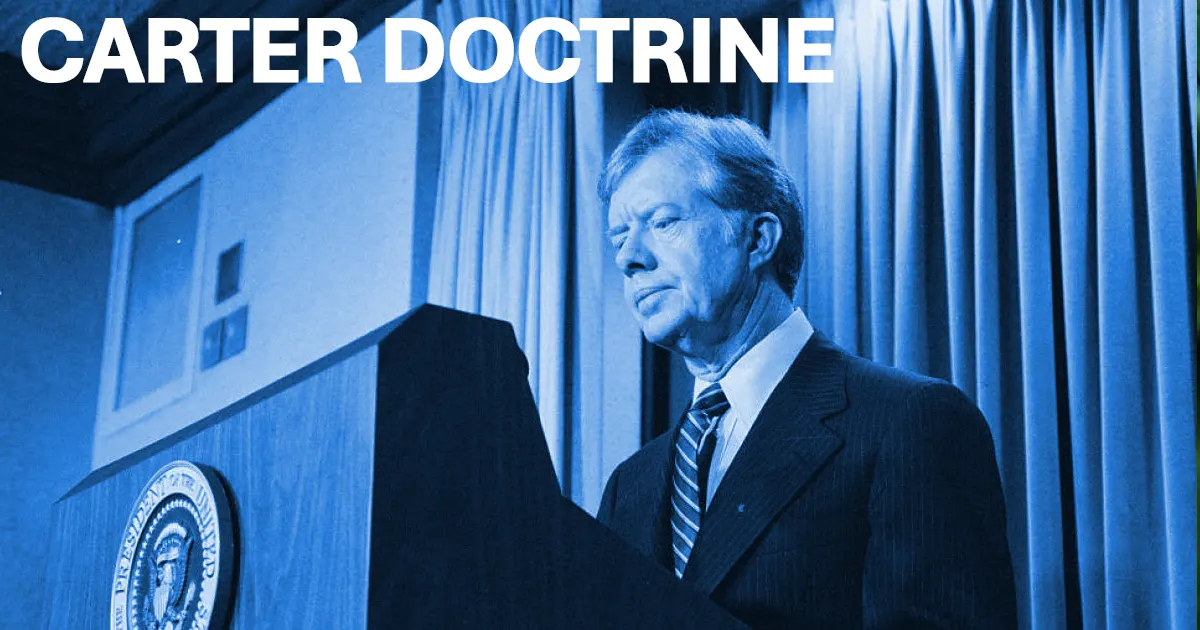GS 2 – INTERNATIONAL RELATION

The Carter Doctrine is a significant U.S. foreign policy statement announced by President Jimmy Carter during his State of the Union Address on January 23, 1980. It declared that the United States would use military force if necessary to protect its national interests in the Persian Gulf.
Background and Motivation
- The doctrine was a direct response to the Soviet invasion of Afghanistan in 1979, which raised concerns about Soviet influence in the Persian Gulf, a region critical for global oil supplies.
- It sought to prevent Soviet expansion and secure the Gulf’s resources essential for U.S. and global energy stability.
Key Impacts
- Deterrence: Asserted U.S. commitment to counter any Soviet threats in the region, ensuring the protection of vital oil supplies.
- Military Expansion:
- Increased U.S. military presence in the Persian Gulf.
- Strengthened basing agreements with regional allies like Saudi Arabia.
- Cold War Dynamics: Escalated tensions between the United States and the Soviet Union, intensifying the Cold War.
- Legacy and Influence:
- Set the stage for future U.S. interventions, including the Gulf War.
- Cemented American involvement in the Middle East’s geopolitical landscape.
The Carter Doctrine highlights the strategic importance of the Persian Gulf and marked a pivotal moment in U.S. foreign policy during the Cold War.




